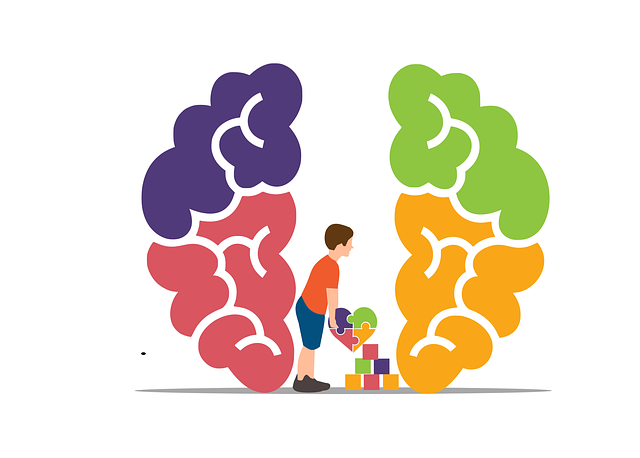Louisville Adolescent and Teen Therapy (LATT) places immense emphasis on risk assessment for patient safety, utilizing a systematic process to identify, analyze, and mitigate risks. This approach aims to prevent adverse outcomes and promote positive results by considering internal and external factors. LATT's unique challenges stem from the sensitive nature of youth mental health, requiring therapists to address developmental stages, family dynamics, peer relationships, and community influences. Effective strategies include attuning to cultural factors, socio-economic disparities, and Mental Illness Stigma Reduction Efforts. Crisis intervention guidance is crucial for immediate risk assessment. LATT prioritizes robust risk management through policy enhancements, training, and mental wellness coaching programs. Education and awareness campaigns normalize conversations around mental wellness, while advocacy drives systemic changes to support practitioners and clients.
Mental health professionals are often on the front line, confronting complex challenges with vulnerable populations. This article explores the critical aspect of risk assessment in mental health practice, focusing specifically on the unique needs of Louisville Adolescent and Teen Therapy. We delve into understanding risk assessment, its significance in identifying potential hazards, and implementing effective management strategies. By recognizing specific considerations for this demographic, professionals can enhance safety and foster positive outcomes in their work with young individuals.
- Understanding Risk Assessment in Mental Health Practice
- Unique Considerations for Louisville Adolescent and Teen Therapy
- Implementing Effective Risk Management Strategies
Understanding Risk Assessment in Mental Health Practice

In the realm of mental health practice, risk assessment is a crucial component that ensures the safety and well-being of both patients and professionals. It involves a systematic process of identifying, analyzing, and mitigating potential risks associated with providing therapy services, particularly within settings like Louisville Adolescent and Teen Therapy. This comprehensive approach aims to prevent adverse outcomes and promote positive patient outcomes by considering various internal and external factors.
The significance of risk assessment cannot be overstated, especially in addressing issues such as burnout prevention strategies for healthcare providers. By proactively identifying risks, mental health professionals can develop tailored interventions and support systems. Moreover, public awareness campaigns development and Mental Health Awareness initiatives benefit from this process, fostering a culture of safety and resilience within the industry.
Unique Considerations for Louisville Adolescent and Teen Therapy

Louisville Adolescent and Teen Therapy presents unique challenges due to the sensitive nature of youth mental health. Professionals in this field must consider the developmental stage of adolescents, who often struggle with identity formation, emotional regulation, and coping mechanisms. The environment they grow up in, including family dynamics, peer relationships, and community influences, plays a significant role in their mental well-being. Therefore, therapists need to be attuned to cultural factors, socio-economic disparities, and the persistent Mental Illness Stigma Reduction Efforts within the Louisville community.
Crisis Intervention Guidance is crucial for addressing immediate risks and promoting resilience in young individuals. Building rapport, fostering trust, and creating a safe space are essential components of effective therapy. By employing strategies tailored to enhance self-esteem and provide Confidence Boosting techniques, therapists can empower adolescents to navigate challenges. This holistic approach considers the unique needs of Louisville’s adolescent population, ensuring they receive comprehensive support for their mental health journey.
Implementing Effective Risk Management Strategies

In the realm of mental health care, particularly at Louisville Adolescent and Teen Therapy, effective risk management is paramount to ensuring client safety and well-being. Implementing robust strategies involves a multi-faceted approach that combines policy, training, and procedural enhancements. Mental wellness coaching programs development plays a pivotal role in equipping professionals with the skills to identify and mitigate risks associated with various mental health conditions. By fostering open dialogue and integrating evidence-based practices, therapists can create a supportive environment that encourages clients to share their concerns openly.
Moreover, contextualizing risk assessment within the broader framework of Mental Illness Stigma Reduction Efforts is essential. Through education and awareness campaigns, mental health professionals can dispel myths and foster empathy, thereby normalizing conversations around mental wellness. Concurrently, engaging in Mental Health Policy Analysis and Advocacy ensures that systemic changes are implemented to support practitioners and clients alike. Such measures collectively contribute to a more comprehensive risk management strategy tailored to the unique needs of Louisville Adolescent and Teen Therapy’s client base.
Mental health professionals, especially those specializing in Louisville Adolescent and Teen Therapy, must continually assess risks to ensure safe and effective practice. By understanding risk assessment principles and implementing robust risk management strategies, therapists can create a supportive environment while mitigating potential hazards. This balanced approach allows for profound therapeutic outcomes while safeguarding clients’ well-being, ultimately fostering healthier, more resilient adolescents and teens within the Louisville community.














